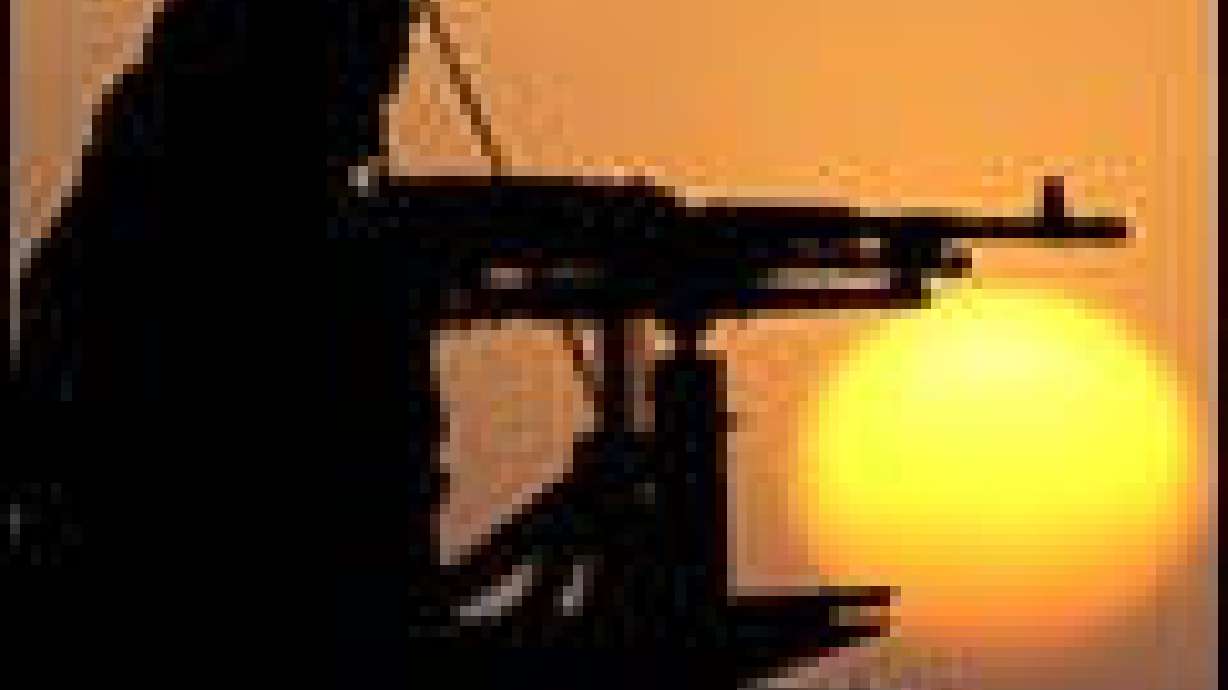Estimated read time: 3-4 minutes
This archived news story is available only for your personal, non-commercial use. Information in the story may be outdated or superseded by additional information. Reading or replaying the story in its archived form does not constitute a republication of the story.
KIRKUK, Iraq (AP) -- American military personnel met with Kirkuk's tribesmen, political and religious leaders Sunday to discuss how to restore law and order -- as well as water, electricity and gas cut off since the retreat of Saddam Hussein's forces three days earlier.
They agreed to form an 18-member committee to impose security and restore essential services, said Mohamed Amin Abdulhailim Chamchali, a Sunni and head of the United Religious Scholars who attended the meeting.
He said the committee -- to be made up of six Kurds, six Arabs and six Turkomans -- would meet twice a week starting Thursday.
But they and the Americans face many skeptics. Hundreds of men waited outside the governor general's office building as the meeting was under way, seeking to meet with governor Rezgar Hamajan to air their grievances.
Many were upset and said the American forces were interested only in protecting oil installations in Kirkuk rather than stemming lawlessness and looting.
Others said with their offices closed or burned down, they had no work or income. Many complained that prices had increased 10-fold.
"The Americans only came here to protect the oil installations," said Najdat Saleh, a Turkoman -- descendants of Turkik speaking tribes from Central Asia. "They've done nothing else. They have done nothing to establish law and order in the city."
He claimed that the fires at many government offices, including the Municipality Building and banks, were the work of the Americans, so that American companies could rebuild.
"How come during the war there was water and electricity but as soon as the Americans came, all these were cut off?" asked Saleh.
"Yes ... that's correct," said some among the dozens of men gathered around him, many nodding in agreement.
"At least under Saddam we had electricity," Saleh said.
There was silence in the crowd.
"Mr. Bush said Iraq will become the envy of all Arab states," Saleh said. "If this promise is not kept -- if in three days there is still no water, there will be blood here."
But not all in the crowds were anti-American. About 50 young men marched across the street from the governor's office chanting pro-American slogans. One carried a huge American flag and other photos of President Bush.
"I have come to see the Americans," said a teenager who declined to give his name. "I have never seen an American before. We would have gotten into trouble with the Mukhabarat (secret police) if we approached a foreigner in the street before."
The Americans also met with engineers at the Northern Oil Co., asking them to operate the oil installations and return all the services as soon as possible. Two of the engineers said they told the Americans that all the computers, files and equipment had been either stolen, burned or destroyed.
A U.S. Special Forces soldier was wounded Sunday while on patrol aimed at restoring order in Mosul. Maj. Fred Dummar said the soldier was in a Land Rover, driving past a waving crowd, when a bullet smashed through the rear window and struck his leg. The wound was not believed to be life-threatening.
In the afternoon, Special Forces soldiers drove a speaker truck around town asking for help in finding the shooter.
"An American was shot in the area today," a Kurdish-American civilian working for the Special Forces said in Arabic. "If you were not responsible, don't be afraid. If you know who was responsible, turn them in. And don't carry weapons in the street."
Mosul appeared calmer Sunday after ethnic clashes between Kurds and Arabs. U.S. troops held the airport and guarded bridges and key intersections on main highways and streets. In the old city center, civilians armed with guns, clubs and metal pipes manned checkpoints.
"Security seems to be improving. The shooting is not heard as often as before, and there are definitely far fewer casualties," said Dr. Ayad Al-Ramadhani, director of the Ibn Sina Teaching Hospital.
(Copyright 2003 by The Associated Press. All Rights Reserved.)









